Europe is the main importer of bananas worldwide. About 5.5 million tons of bananas were imported in 2022, 75% of which came from Latin America. The supply chain is complex and requires a large amount of resources and energy, especially during the ripening stage. To reduce the environmental impact, Ctm Agrofair - a joint venture between two European Fairtrade organizations, Italy's Altromercato and the Netherlands' Agrofair Europe - has adopted a banana storage and ripening system that uses cold storage cells powered by renewable energy.
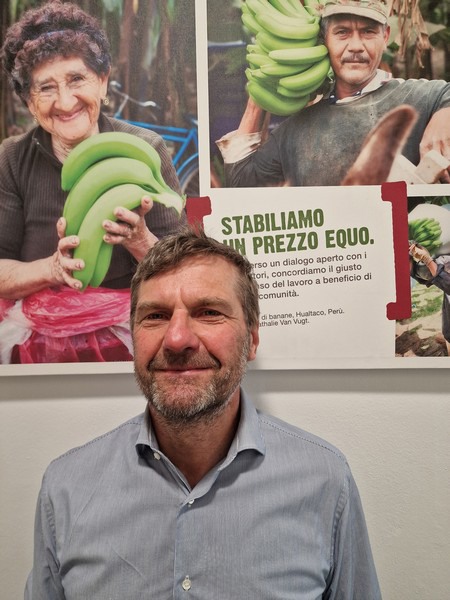 "Altromercato, the Italian main fair trade organization, builds ethical and sustainable supply chains through social, environmental and economic lens. Agrofair Europe buys directly from its producers, guarantees fair prices and consistent volumes throughout the year, provides technical support to producers and takes care of quality control and import logistics," said Heini Grandi, director of Ctm Agrofair. (pictured on the side)
"Altromercato, the Italian main fair trade organization, builds ethical and sustainable supply chains through social, environmental and economic lens. Agrofair Europe buys directly from its producers, guarantees fair prices and consistent volumes throughout the year, provides technical support to producers and takes care of quality control and import logistics," said Heini Grandi, director of Ctm Agrofair. (pictured on the side)
In addition to bananas, the joint venture sells other tropical fruits such as bannitos, as well as Italian fair trade products, such as citrus fruits and grapes. "This is something new in Italy. The distribution of these products is still very limited to fair trade stores and specialized shops, although some of the supermarket chains are starting to offer them as well," says Grandi.
"The fair trade banana market in Italy is around 23,500 tons, both organic and conventional. Before the pandemic, it was a fast-growing market, but after the pandemic, it declined, as did the organic segment. Even with fair trade bananas, the price has determined the consumer's choice," explains Grandi. "The pandemic hit us as much as it hit the producing countries. Inflationary pressures have been significant. For example, the price of cartons to pack bananas has risen by 60-70% and fertilizers by 50-70%. In Ecuador and Peru, not all our growers were able to meet these costs. As a result, they reduced their use of fertilizers, for example, leading to a reduction in volume and quality. In addition, the euro weakened against the dollar and the cost of diesel and electricity increased, which had a major impact on transport and energy costs."
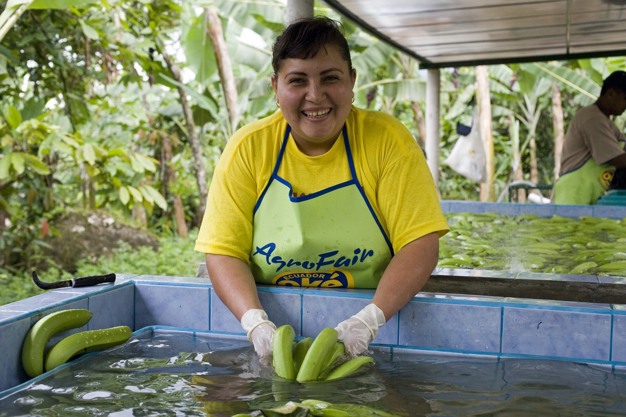
"Now that the downward trend has come to an end, consumption must be on the rise again. However, if we want to talk about social, environmental and economic sustainability, we need to start by paying more fairly and focusing on quality. Our customers are prepared to pay a little more, but they want to know the origin of the product. They also expect the fruit to be safe to eat, of high quality, ethically produced and environmentally friendly." In the financial year 2022/23, Ctm Agrofair generated a turnover of €23.5 million, representing a growth of 6% compared to the previous year.
Cooling units powered by renewable energy
Faced with the high energy costs of ripening bananas, Ctm Agrofair has adopted responsible strategies with low environmental impact. In December 2023, its partner Fitimex-Agral in Albenga, Liguria, reprogrammed the ripening process based on renewable energy. "With the soaring cost of electricity in recent years, it was a logical and necessary investment, as the ripening of bananas requires high energy consumption," says Grandi.
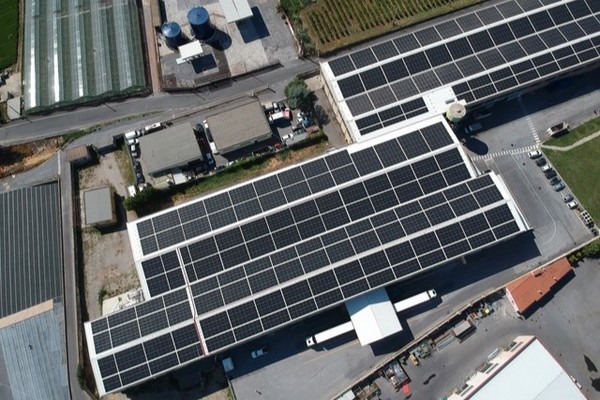
To increase energy efficiency and reduce its impact on the environment, Fitimex-Agral has installed 3,617 solar panels on the roof of the warehouse, covering an area of around 11,000 square meters. The panels allow the warehouse to draw electricity from the grid only at night, providing a significant portion of the energy needed to store the bananas. The aim is to cover 60% of the energy needs, reducing CO2 emissions and the use of fossil fuels.
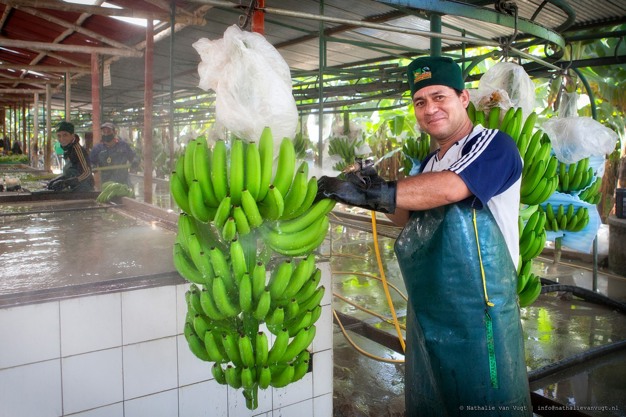
The growing cycle of a banana is about 10 months. Bananas for export are harvested when they are still green. The first processing of the bananas takes place in the producing countries (mainly Ecuador and Peru), after which they are transported by ship to Italy. During transport, the temperature is kept below 13°C to slow down the ripening process. Once in Italy, the bananas are transferred to cold storage rooms where, thanks to controlled temperature and humidity conditions, 80% of the total starch content is converted into sugars in about five days, reaching the desired degree of ripeness. Accurate management of the parameters in the ripening cells is crucial, both for the quality and flavor of the fruit and to ensure food safety. Ethylene, a natural gas produced by the fruit, plays the main role in the ripening process, which is accelerated by adding additional ethylene and by gradually raising the temperature to 18°C. This process gives the banana its characteristic yellow color with green tips, soft flesh and sweet taste.
Recycling of plastic in banana plantations
In banana farming, plastic bags are used to protect the fruit from pests, insects, birds, pollution and adverse conditions. These bags are impregnated with insecticides, sometimes natural, as in the case of organic bananas, and sometimes chemical, as in the case of conventional bananas. The plastic bags help the bananas to grow safely and are removed when the fruit is ready to be harvested. However, if there's no organized system for collecting the used bags, they can end up polluting the soil once harvested.
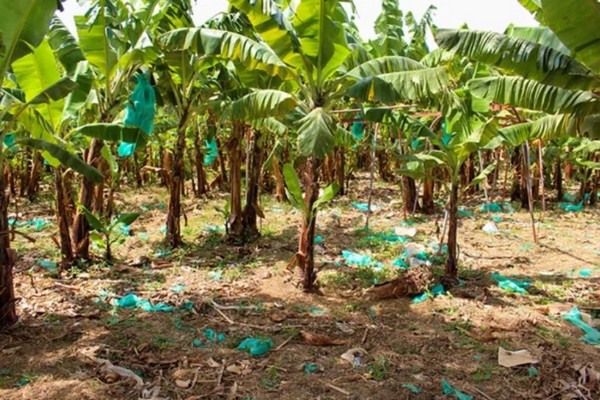
"In conventional plantations, however, these plastic bags are often left in the fields next to the crops or on the roads, which understandably damages the environment and local communities, especially if the bags are impregnated with chemicals," Grandi explains. "For this reason, a large recycling plant was built to transform the plastic into pallet corner protectors, and the first shipment of Altromercato organic bananas with pallet corner protectors made from recycled plastic took place in February 2022."
Other initiatives and future challenges
"Whenever possible, we opt for organic farming. Otherwise, we try to reduce the use of chemicals. In addition, through Agrofair South, we try to support farmers in technical areas such as improving water management, reducing the use of chemical inputs and implementing good farming practices. In Ecuador, we have started a project on the use of organic fertilizers," says Grandi.
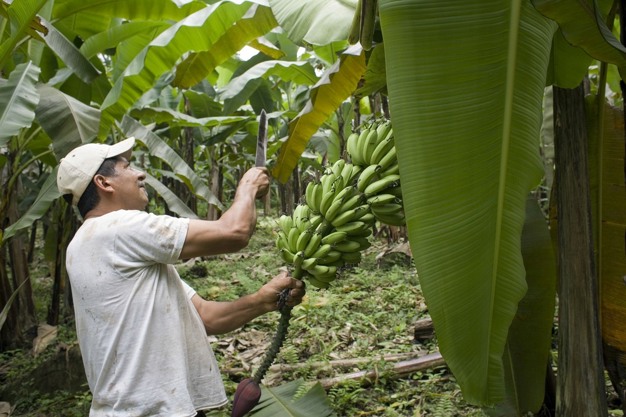
"Climate change is another challenge. Extreme weather events are increasingly becoming the norm. "Be it heavy storms or severe droughts. One of the initiatives with banana growers is to provide data on historical climate measurements to help optimize growing methods. Another hot topic is the fungal disease TR4, known as Panama disease, which affects the Cavendish variety and is already a reality in Central America. A lot of research is being done on resistant varieties, but we need to find one that can be commercialized," concludes Grandi.
Per maggiori informazioni:
Altromercato
www.altromercato.it
